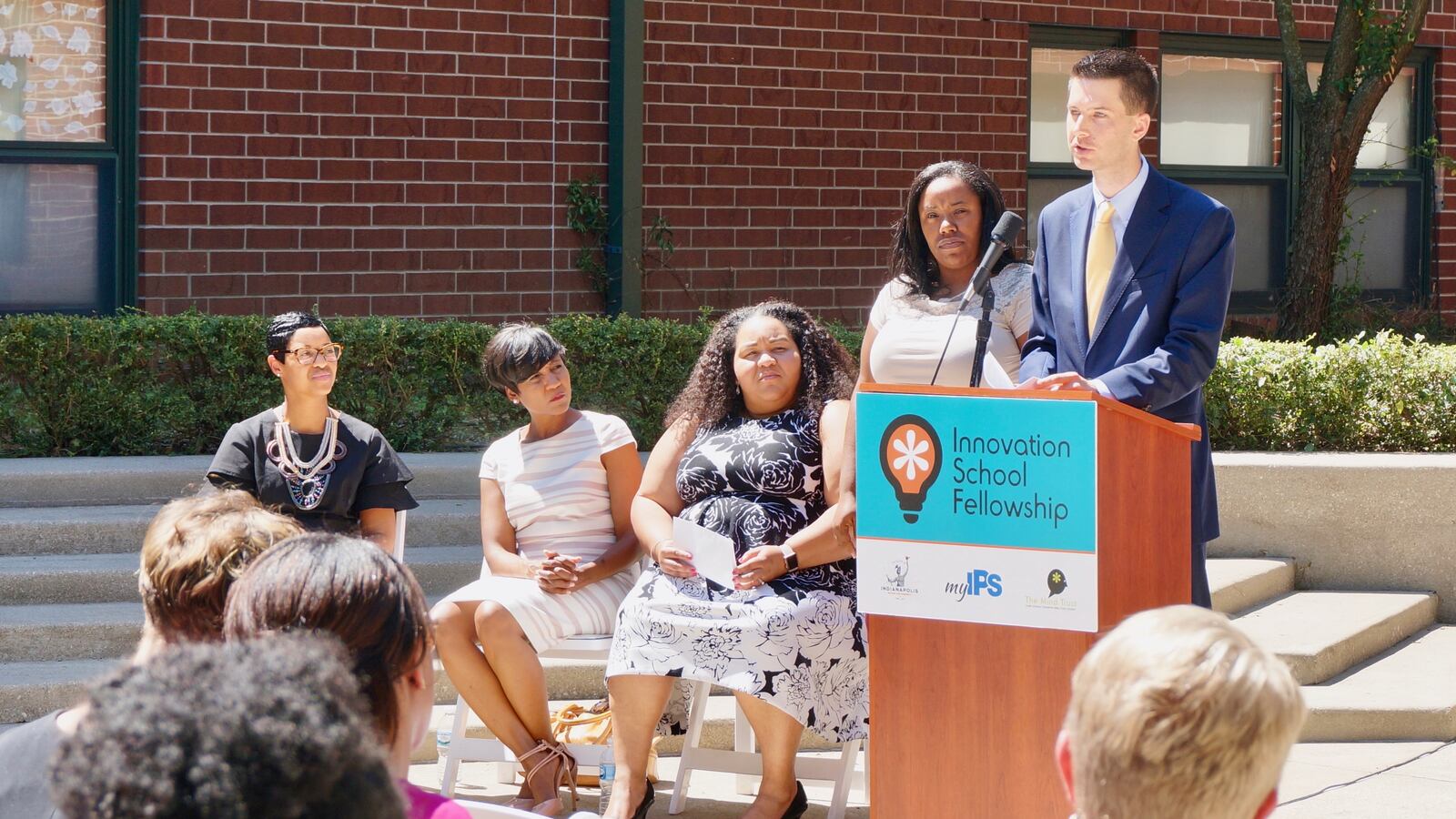Hoping to jumpstart innovation in Indianapolis education, four experienced educators will spend a year or more developing new models for schools.
The educators were chosen from among 39 applicants for fellowships from the Mind Trust, a nonprofit that supports district-charter partnerships. This is the fifth round of innovation fellowships, which give leaders one to two years to prepare to launch or takeover schools in Indianapolis Public Schools.
The fellowship includes an annual salary of about $100,000, benefits, and support for creating new schools, such as visits to other schools, training, and legal assistance. The package for each fellow is worth approximately $200,000 per year.
The city has 16 innovation schools, and they enroll about 20 percent of the students in Indianapolis Public Schools. They are under the umbrella of the district, but they are managed by outside charter operators or nonprofits, and most of the teachers are not employed by the district nor do they belong to the teachers union. The Mind Trust has been instrumental in the creation of innovation schools, and the vast majority of the schools were founded with support from the nonprofit.
The innovation fellowship winners include two people from Indianapolis and two recruits from other cities. But in a sign that the nonprofit’s leaders have become more cautious in their choices, all four have years of experience in education.
Brandon Brown, CEO of the Mind Trust, said that’s by design. About four early innovation fellows never ended up opening innovation schools. But all of the recent winners have either opened schools or are on track to open them, he said.
Candidates are much more likely to be successful, he said, if they have the entrepreneurial spirit to create their own nonprofits and win community support — and have experience in education.
“There’s this notion that if you’re a great entrepreneur, you don’t have to have the unique skill set to know education and [yet] you can go operate a school,” Brown said. “We’ve learned that that’s a very rare thing to see.”
While the winners have all worked in established schools, however, Brown said they are trying new models.
Tihesha Henderson, principal of School 99, won a fellowship to develop a school designed to meet the social and emotional needs of students. She will take a yearlong leave from her current job and hopes to return and transform School 99 into an innovation school.
Henderson envisions a school that adjusts to meet student needs, whether through therapy, small classes, or classroom redesign. School 99 already has significant flexibility, but as an innovation school, Henderson would be able to change the school calendar and set teacher pay, she said.
“We don’t have to be the status quo,” she said. “We can branch out and do some things differently, but it all comes back to — are we meeting out kids needs?”
The other fellows are Alicia Hervey, dean of student development for Christel House Academies; Kim Neal, managing director of secondary education for the charter school network KIPP DC; and Brandy Williams, an expert in special education from New Orleans.
Although innovation schools are considered part of Indianapolis Public Schools, they also often have charters through the office of Mayor Joe Hogsett. The collaborative nature of the schools was on display at the announcement Thursday, where Hogsett, Superintendent Lewis Ferebee, and Brown all spoke.
The innovation schools, said Ferebee, are part of a broader district strategy to give principals more flexibility to run their schools.
“We hire great leaders, get out of their way and give them the space and agility to make decisions about academics [and] operations to better serve our students and our families,” he said.
The city’s reputation in the education community is helping it attract educators from across the country, said Hogsett.
“They know our city is one where they can make a difference,” he said. “Indianapolis welcomes their passion with open arms.”

